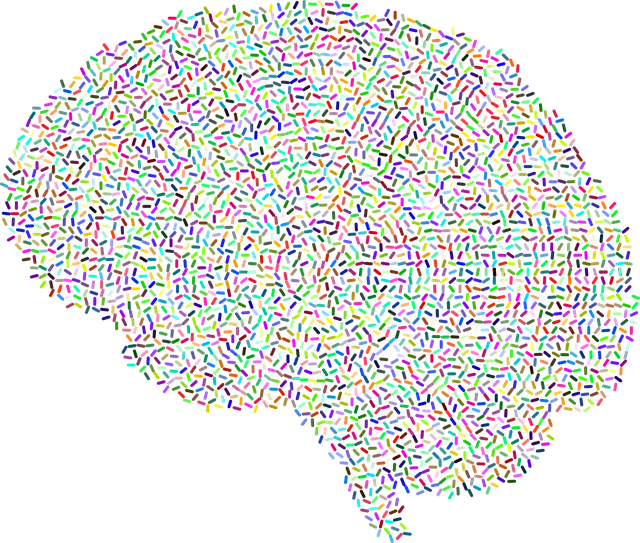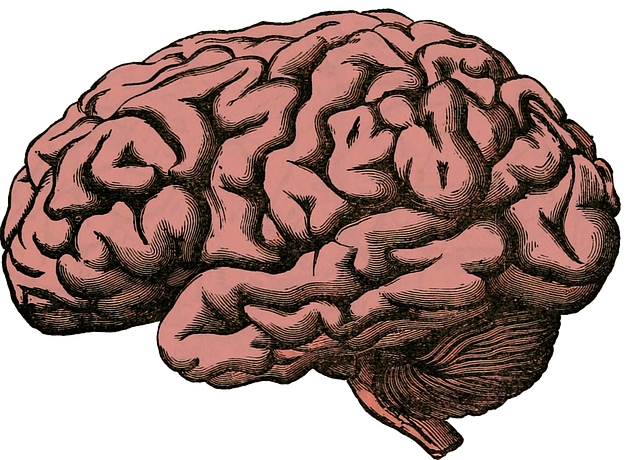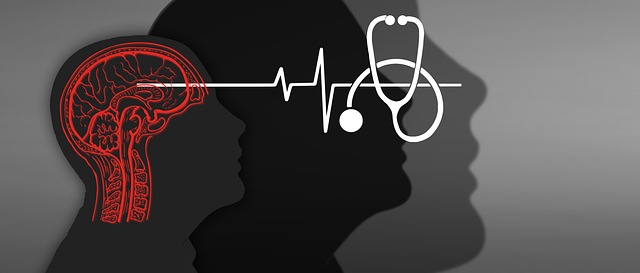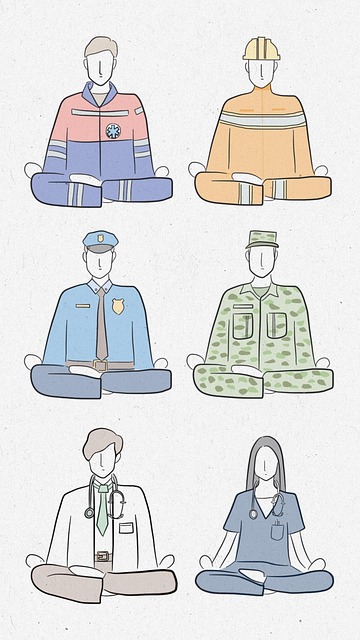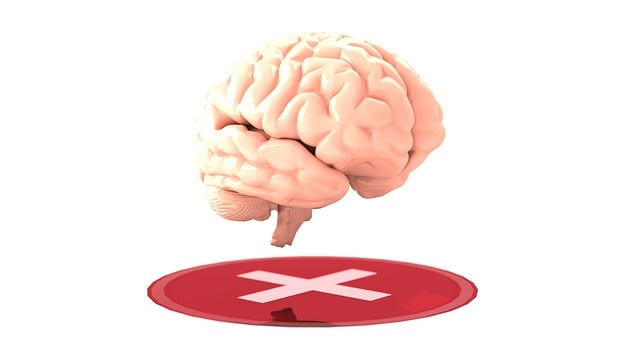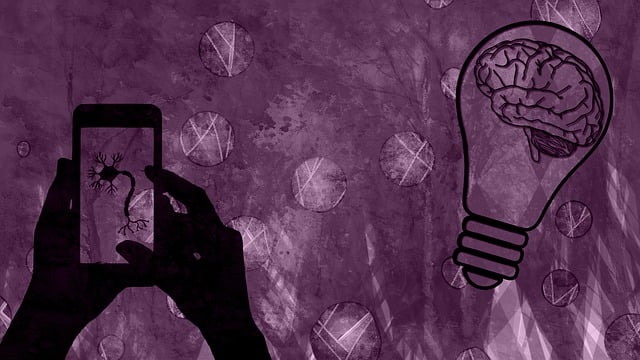Boulder Stress Management Therapy (BSMT) is an innovative approach to mental illness diagnosis in Boulder, addressing the challenges of complex symptoms and subjective assessments. By focusing on stress reduction, mindfulness, and cognitive restructuring, BSMT improves diagnostic accuracy by enhancing self-awareness and emotional regulation. Its evidence-based strategies, cultural sensitivity, and emphasis on client confidence lead to more comprehensive psychological understanding. With advanced training incorporating BSMT techniques, healthcare professionals aim to reduce misdiagnosis, improve patient outcomes, and foster a culture of continuous learning in mental health care.
Mental illness diagnosis accuracy has long been a subject of concern, with many challenges impacting the reliability of assessments. This article explores efforts aimed at improving diagnostic precision, delving into key strategies such as Boulder Stress Management Therapy, innovative assessment tools, and enhanced training for healthcare professionals. By understanding the intricacies of mental health evaluation, we can foster more accurate diagnoses, ultimately leading to better patient outcomes. Specifically, this piece highlights how Boulder Stress Management Therapy contributes to enhancing diagnostic accuracy.
- Understanding the Challenges of Mental Illness Diagnosis
- The Role of Boulder Stress Management Therapy in Enhancing Accuracy
- Innovative Techniques and Tools for Better Assessment
- Training and Support for Healthcare Professionals
Understanding the Challenges of Mental Illness Diagnosis

Mental illness diagnosis is a complex process that involves navigating through various challenges. One of the primary hurdles is the wide range of symptoms and their overlap across different disorders, making it difficult for healthcare professionals to differentiate between them. This complexity is further exacerbated by the subjective nature of many mental health assessments, where individual experiences and perceptions play a significant role. For instance, what might be considered mild anxiety in one person could manifest as severe depression in another, adding layers of complexity to accurate diagnosis.
In Boulder, stress management therapy incorporating Mind Over Matter principles has emerged as a promising approach. These therapies focus on teaching individuals effective coping mechanisms and mood management skills, aiming to prevent or mitigate symptoms of depression and other common mental health issues. By empowering individuals with tools to understand and regulate their emotions, these strategies can enhance diagnostic accuracy by providing a clearer picture of an individual’s psychological state.
The Role of Boulder Stress Management Therapy in Enhancing Accuracy

Boulder Stress Management Therapy (BSMT) plays a pivotal role in enhancing mental illness diagnosis accuracy by focusing on stress reduction and resilience building. Unlike traditional talk therapies, BSMT integrates mindfulness practices, cognitive restructuring, and problem-solving skills tailored to individual needs. This holistic approach not only improves clients’ ability to manage symptoms but also enhances their overall coping mechanisms, leading to more precise diagnostic assessments.
In the context of Mental Health Policy Analysis and Advocacy, BSMT’s emphasis on Cultural Sensitivity in Mental Healthcare Practice is notable. By fostering a deeper understanding of one’s unique stressors and experiences, therapists can provide culturally responsive care, bridging the gap between diverse populations and mental healthcare systems. Additionally, BSMT’s focus on boosting client confidence contributes to more open communication during diagnostic processes, encouraging individuals to share detailed accounts of their struggles, thereby improving diagnosis accuracy.
Innovative Techniques and Tools for Better Assessment

In the pursuit of enhancing mental illness diagnosis accuracy, innovative techniques and tools are revolutionizing assessment methods. One prominent approach is the integration of Boulder Stress Management Therapy, which focuses on identifying and modifying maladaptive coping strategies, thereby improving overall emotional well-being. This therapeutic method encourages individuals to develop healthier ways of managing stress and challenges, leading to more accurate diagnoses by mental health professionals.
Additionally, Crisis Intervention Guidance plays a crucial role in this process. By employing evidence-based strategies, healthcare providers can effectively navigate complex situations and accurately assess individuals during times of crisis. Moreover, Emotional Well-being Promotion Techniques are being tailored to meet the diverse needs of patients, ensuring that assessments are comprehensive and considerate of each person’s unique emotional landscape. The goal is to foster positive thinking and resilience, which not only aids in diagnosis but also supports long-term recovery.
Training and Support for Healthcare Professionals

In recent years, there has been a growing emphasis on enhancing mental health care through improved diagnosis accuracy. One significant aspect of this effort is the training and support provided to healthcare professionals. Advanced educational programs are being developed to equip practitioners with the latest research and techniques in recognizing and diagnosing various mental illnesses. These initiatives often include specialized workshops on Boulder Stress Management Therapy, integrating evidence-based practices such as Mindfulness Meditation and Mood Management strategies into their clinical approaches.
The focus on continuous professional development aims to reduce misdiagnosis rates and improve patient outcomes. By fostering a culture of learning, healthcare providers can enhance their ability to discern subtle symptoms, especially in cases where stress-related disorders overlap with other mental health conditions. This holistic training encourages practitioners to adopt a more nuanced understanding of mental illness, considering both the biological and psychological aspects, thereby promoting effective Stress Reduction Methods for their patients.
Mental illness diagnosis accuracy has long presented significant challenges, but with concerted efforts and innovative solutions, improvements are within reach. By integrating techniques like Boulder Stress Management Therapy, leveraging advanced assessment tools, and providing robust training for healthcare professionals, we can enhance diagnostic precision. These comprehensive strategies not only improve patient outcomes but also foster a more supportive and effective mental health care system.

